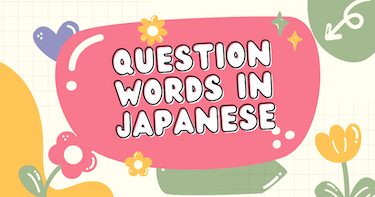In Japanese, the word “sun” can be expressed in various ways, each with different nuances depending on the context. Whether you’re describing a beautiful sunrise or the warmth of sunlight, these 20 words will help expand your Japanese vocabulary and improve your understanding of how Japanese people talk about the sun.
Japanese words for sun, sunshine and day
1. 日 (ひ, hi) – Sun, Day
“日” is a very versatile word in Japanese. It refers to both “the sun” as well as “day” or “date,” depending on the context. When referring to the sun, it usually describes the sun in a general sense, but when talking about the day, it’s often linked with time expressions.
Example: 日が昇る (ひがのぼる, Hi ga noboru) – “The sun rises.” (Describes the movement of the sun in the sky, symbolizing the beginning of the day.)
2. 太陽 (たいよう, taiyō) – The Sun (Astronomical Body)
“太陽” is a more formal and scientific term for the sun as the star that provides light and energy. It is rarely used in casual conversation, but it can be found in educational and scientific contexts.
Example: 太陽が眩しい (たいようがまぶしい, Taiyō ga mabushii) – “The sun is dazzling.” (This phrase highlights the sun’s intense brightness, often used in the summer.)
3. 日光 (にっこう, nikkō) – Sunlight
“日光” specifically refers to sunlight, the rays or beams emitted by the sun. It’s a general term for light from the sun, and you’ll often see it in environmental or natural settings.
Example: 日光を浴びる (にっこうをあびる, Nikkō o abiru) – “To bask in sunlight.” (This phrase can evoke the feeling of enjoying sunlight, especially after being indoors for a long time.)
4. 日差し (ひざし, hizashi) – Sunlight, Sun’s Rays
“日差し” refers to the sunlight itself, particularly the rays that shine down. It’s commonly used to describe specific rays of light and can imply their warmth or strength.
Example: 日差しが暖かい (ひざしがあたたかい, Hizashi ga atatakai) – “The sunlight is warm.” (This phrase can express a pleasant warmth from the sun during a mild day.)
5. 朝日 (あさひ, asahi) – Morning Sun
“朝日” is a poetic term used to describe the early morning sun. It’s often associated with new beginnings and is considered a symbol of hope and freshness.
Example: 朝日は美しい (あさひはうつくしい, Asahi wa utsukushii) – “The morning sun is beautiful.” (The phrase captures the beauty of the sunrise and the calmness of early mornings.)
6. 夕日 (ゆうひ, yūhi) – Evening Sun, Sunset
“夕日” describes the sun in the evening, particularly when it begins to set. It carries a feeling of closure or peace and is often a favorite subject in art and photography.
Example: 夕日が沈む (ゆうひがしずむ, Yūhi ga shizumu) – “The sun sets.” (This marks the end of the day, often evoking feelings of nostalgia.)
7. 日の出 (ひので, hinode) – Sunrise
“日の出” refers to the specific moment when the sun rises above the horizon. It is a time of new beginnings, often used symbolically for fresh starts or optimism.
Example: 日の出を見る (ひのでをみる, Hinode o miru) – “To watch the sunrise.” (A common activity to connect with nature and reflect at the start of the day.)
8. 日没 (にちぼつ, nichibotsu) – Sunset
“日没” describes the moment the sun sets below the horizon. It’s the opposite of “日の出” and represents the conclusion of the day.
Example: 日没まで待つ (にちぼつまでまつ, Nichibotsu made matsu) – “Wait until sunset.” (Often said during social gatherings or outdoor activities, when people enjoy the transition to evening.)
9. 太陽光 (たいようこう, taiyōkō) – Sunlight, Solar Light
“太陽光” refers to the specific light emitted by the sun. It’s commonly used in discussions about solar energy and environmental topics. This term is used when talking about the natural light that reaches the Earth from the sun.
Example: 太陽光発電 (たいようこうはつでん, Taiyōkō hatsuden) – “Solar power generation.” (A term associated with modern technologies harnessing the sun’s energy.)
10. 日照 (にっしょう, nisshō) – Sunshine
“日照” refers to the total amount of sunlight that reaches a given area over time. It’s often used in weather reports or agricultural discussions.
Example: 日照時間 (にっしょうじかん, Nisshō jikan) – “Duration of sunshine.” (This is a technical term often used in meteorology or discussions about climate conditions.)
11. 太陽熱 (たいようねつ, taiyōnetsu) – Solar Heat
“太陽熱” refers to the heat produced by the sun, particularly its use in solar energy systems. It’s also used when discussing the sun’s effect on temperature or warmth.
Example: 太陽熱を利用する (たいようねつをりようする, Taiyōnetsu o riyō suru) – “To use solar heat.” (A phrase used in contexts related to energy conservation and green technologies.)
12. 陽 (よう, yō) – Sun, Positive (Yin and Yang Concept)
“陽” represents the concept of yang in the yin-yang system, symbolizing positive, active, and energetic forces, often linked to sunlight.
Example: 陽の光 (ようのひかり, Yō no hikari) – “Rays of the sun.” (This can be used metaphorically to describe positive energy or light in both physical and emotional senses.)
13. 日輪 (にちりん, nichirin) – Solar Disk
“日輪” refers to the disk of the sun, particularly as seen from Earth. It is often used in literary or philosophical contexts to evoke a deeper connection with nature.
Example: 日輪の輝き (にちりんのかがやき, Nichirin no kagayaki) – “The shining of the solar disk.” (This phrase conveys a sense of awe and reverence for the sun in literature and poetry.)
14. 日向 (ひなた, hinata) – Sunny Place
“日向” refers to a place that is bathed in sunlight. It’s often used to describe areas that are warm and inviting, where people like to relax.
Example: 日向で休む (ひなたでやすむ, Hinata de yasumu) – “Rest in the sunny place.” (This evokes the feeling of enjoying a warm, pleasant spot outdoors.)
15. 日照り (ひでり, hideri) – Drought
“日照り” describes a dry spell or drought caused by prolonged exposure to the sun. It’s often used when discussing periods of water scarcity.
Example: 日照りが続く (ひでりがつづく, Hideri ga tsuzuku) – “The drought continues.” (This term conveys the severity of extended periods of hot, dry weather.)
16. 陽射し (ひざし, hizashi) – Sunshine, Sun’s Rays
“陽射し” is another word for sunshine or sun’s rays, often used in a more poetic or descriptive way. It’s commonly used when referring to the beauty or intensity of sunlight.
Example: 陽射しが強い (ひざしがつよい, Hizashi ga tsuyoi) – “The sunlight is strong.” (It indicates the powerful or intense rays of the sun, often felt in the midday.)
17. 照り (てり, teri) – Glare of the Sun
“照り” refers to the intense glare or brightness that comes from the sun, particularly when it’s reflected off surfaces like water or glass.
Example: 照り返しが強い (てりかえしがつよい, Terikaeshi ga tsuyoi) – “The sun’s reflection is strong.” (This describes the discomfort one might feel from the sun’s reflected rays.)
18. 日傘 (ひがさ, higasa) – Parasol (Sunshade)
“日傘” refers to a parasol or sunshade, typically used to protect oneself from the sun’s heat and rays. It’s commonly used by women, especially in Japan’s hot summers.
Example: 日傘を使う (ひがさをつかう, Higasa o tsukau) – “Use a parasol.” (This is often a common sight in the summer, providing shade during outdoor activities.)
19. 日中 (にっちゅう, nicchū) – During the Day
“日中” is a term used to describe the period of time during daylight hours, typically from sunrise to sunset. It indicates the part of the day when the sun is shining, often used to reference activities or events happening during this time.
Example: 日中は暑い (にっちゅうはあつい, Nicchū wa atsui) – “It’s hot during the day.” (This phrase emphasizes the high temperatures typically experienced under the sun during midday.)
20. 日々 (ひび, hibi) – Daily, Everyday
While “日々” generally means “daily” or “every day,” it can sometimes be associated with the sun in the context of how the sun rises and sets every day. It emphasizes the continuity and passage of time as marked by the cycle of the sun.
Example: 日々を大切にする (ひびをたいせつにする, Hibi o taisetsu ni suru) – “To cherish every day.” (The expression uses the idea of daily life, symbolized by the regularity of the sun’s movements, to convey the value of everyday experiences.)
Using MochiKanji to Master Sun-Related Vocabulary
To effectively memorize these essential words related to the sun, MochiKanji provides a powerful tool with its Flashcard and Golden Time features. The Flashcards help you review each word in context, offering visual aids, examples, and audio for better retention. Meanwhile, the Golden Time feature ensures that you’re reviewing the words at optimal intervals for long-term memory.
Conclusion
Understanding these 20 easy Japanese words for “sun” and “sunlight” will enhance your ability to discuss daily weather, time, and nature in Japanese. Whether you’re talking about a beautiful sunset or the warmth of the sun, these words will help you express yourself more naturally.





